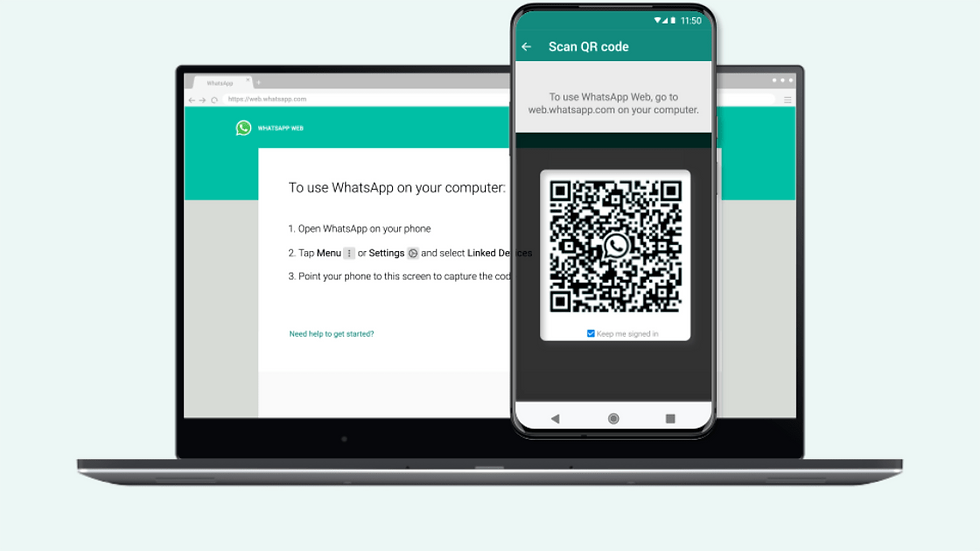Free Messaging Apps: Instant Messaging Alternatives to WhatsApp
- internet-offer.ch

- Sep 21, 2025
- 4 min read

In the digital age, instant communication has become the norm. While WhatsApp undeniably dominates in many parts of the world, there are numerous alternative messaging apps that offer unique features, with a particular focus on privacy, security, or additional functionalities. But which ones are the best? And who are they designed for? In this guide, we will explore the main free alternatives to WhatsApp, analyzing their peculiarities to help you choose the one best suited to your needs.
1. The Main Alternatives to WhatsApp: Features and Details
Here's an in-depth analysis of the most popular messaging applications you can download for free on your smartphone (Android or iPhone).
a) Telegram
Launch: 2013
Server Location: Distributed across various jurisdictions worldwide to optimize speed and resistance to censorship. It does not have a single fixed location for data servers.
Advertising: Absent in private chats. It has introduced advertising in the form of "sponsored messages" in very large public channels.
Privacy and Security Level: Offers end-to-end encryption only for "secret chats" (optional), not for all chats. Uses its own protocol (MTProto). Strong focus on security against censorship.
Distinguishing Features: Public channels with millions of users, groups of up to 200,000 members, self-destructing messages, sending files up to 2 GB, customizable bots, group voice and video calls.
Data Usage: Generally efficient, but sending very large files can affect your mobile subscription data consumption.
b) Signal
Launch: 2014
Server Location: Operated by Signal Messenger LLC, a non-profit organization, in the United States. Minimal encrypted user data.
Advertising: Completely absent. Funded by donations.
Privacy and Security Level: Considered the most secure and privacy-focused application. All communications (chats, voice, and video calls) are end-to-end encrypted by default, using the Signal protocol (open-source and widely audited). Does not collect metadata.
Distinguishing Features: Private and group chats, voice and video calls, disappearing messages, screenshot blocking, PIN protection for the app.
Data Usage: Efficient for calls and messages, but like any app, intensive use of video calls will consume data.
c) Threema
Launch: 2012
Server Location: Switzerland. Servers are independently managed and comply with strict Swiss privacy laws.
Advertising: Absent. The app is paid (one-time purchase), but usage incurs no additional costs.
Privacy and Security Level: Excellent. All communications are end-to-end encrypted by default. No user data is stored on servers after message delivery. Total anonymity: does not require a phone number.
Distinguishing Features: Text and voice messages, voice and video calls, polls, file sending, identity verification feature via QR scanner.
Data Usage: Optimized for minimal consumption.
d) Viber
Launch: 2010
Server Location: Globally distributed. The parent company (Rakuten) is based in Luxembourg.
Advertising: Present (public channels, paid stickers).
Privacy and Security Level: Offers end-to-end encryption for individual and group chats (as of 2016). The protocol is not open-source like Signal, but security is good.
Distinguishing Features: Free voice and video calls (also group), stickers, games, secret chats with self-destruction, communities, chat bots.
Data Usage: Similar to WhatsApp, moderate use should not significantly affect your mobile plan (Link Comparazione Abbonamenti Mobile) data consumption.
e) Skype
Launch: 2003 (acquired by Microsoft in 2011)
Server Location: Global, managed by Microsoft (USA).
Advertising: Present (within the interface, particularly for calls to landlines/mobiles).
Privacy and Security Level: Not known for end-to-end encryption for all communications. Security is managed by Microsoft and follows American laws.
Distinguishing Features: High-quality voice and video calls (also group), paid calls to landlines and mobiles, screen sharing, real-time translation.
Data Usage: Traditionally more demanding in terms of bandwidth, advisable to check with a Speed Test to ensure optimal functionality.
2. Messaging Beyond Apps: Traditional SMS and Other Services
Despite the advancement of instant messaging apps, traditional SMS still play a role, especially in emergencies or when an internet connection is unavailable. Many Swiss mobile sim providers still offer unlimited or very generous SMS packages.
Apple Messages (iMessage): For iPhone users, iMessage is an integrated alternative that offers end-to-end encryption for conversations between Apple users. When sending a message to a non-Apple user, the system automatically switches to SMS.
3. Which App to Choose? The Best for Every Need
The choice of the ideal app depends on your priorities. Here's a summary to help you:
For Maximum Privacy and Security: Signal is the preferred choice of security experts. If you live in Switzerland and are looking for a solution even more anchored to local laws and anonymity, Threema is an excellent option (though paid).
For Advanced Features and Large Groups: Telegram offers a wide range of functions, from public channels to bots, ideal for managing large communities or for those who like to customize the experience.
For Quality Voice and Video Calls: Viber and Skype are excellent for free audio/video calls, with Viber offering better integration with instant messaging, and Skype for paid international calls and screen sharing (great for working with a mobile subscription + smartphone that supports such functions).
For Balanced Daily Use: WhatsApp remains a popular choice due to its widespread adoption, but alternatives offer valid options with specific focuses.
Ultimately, the best app is the one that meets your needs and, most importantly, the one used by your contacts. Often, you'll end up using more than one! Explore the options and find your perfect combination to communicate freely and effectively.


Comments